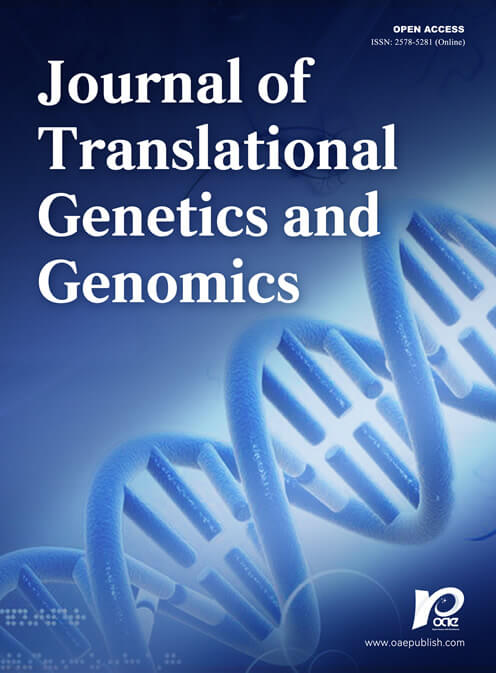REFERENCES
1. 2019 Diseases and Injuries Collaborators. Global burden of 369 diseases and injuries in 204 countries and territories, 1990-2019: a systematic analysis for the Global Burden of Disease Study 2019. Lancet. 2020;396:1204-22.
2. Cuijpers P, Javed A, Bhui K. The WHO world mental health report: a call for action. Br J Psychiatry. 2023;222:227-9.
3. Andrews G, Slade T, Issakidis C. Deconstructing current comorbidity: data from the Australian national survey of mental health and well-being. Br J Psychiatry. 2002;181:306-14.
4. Plana-Ripoll O, Pedersen CB, Holtz Y, et al. Exploring comorbidity within mental disorders among a danish national population. JAMA Psychiatry. 2019;76:259-70.
5. Bijl RV, Ravelli A, van Zessen G. Prevalence of psychiatric disorder in the general population: results of The Netherlands Mental Health Survey and Incidence Study (NEMESIS). Soc Psychiatry Psychiatr Epidemiol. 1998;33:587-95.
6. Martin J, Taylor MJ, Lichtenstein P. Assessing the evidence for shared genetic risks across psychiatric disorders and traits. Psychol Med. 2018;48:1759-74.
7. Anttila V, Bulik-Sullivan B, Finucane HK, et al. Analysis of shared heritability in common disorders of the brain. Science. 2018;360:eaap8757.
8. Menculini G, Chipi E, Paolini Paoletti F, et al. Insights into the pathophysiology of psychiatric symptoms in central nervous system disorders: implications for early and differential diagnosis. Int J Mol Sci. 2021;22:4440.
9. Zuo Y, Wei D, Zhu C, Naveed O, Hong W, Yang X. Unveiling the pathogenesis of psychiatric disorders using network models. Genes. 2021;12:1101.
10. Cui L, Li S, Wang S, et al. Major depressive disorder: hypothesis, mechanism, prevention and treatment. Signal Transduct Target Ther. 2024;9:30.
11. Okaty BW, Commons KG, Dymecki SM. Embracing diversity in the 5-HT neuronal system. Nat Rev Neurosci. 2019;20:397-424.
13. Palma-Gudiel H, Fañanás L. An integrative review of methylation at the serotonin transporter gene and its dialogue with environmental risk factors, psychopathology and 5-HTTLPR. Neurosci Biobehav Rev. 2017;72:190-209.
14. Khaliq S, Haider S, Ahmed SP, Perveen T, Haleem DJ. Relationship of brain tryptophan and serotonin in improving cognitive performance in rats. Pak J Pharm Sci. 2006;19:11-5.
15. Williams E, Stewart-Knox B, Helander A, McConville C, Bradbury I, Rowland I. Associations between whole-blood serotonin and subjective mood in healthy male volunteers. Biol Psychol. 2006;71:171-4.
16. Heiming RS, Mönning A, Jansen F, Kloke V, Lesch KP, Sachser N. To attack, or not to attack? The role of serotonin transporter genotype in the display of maternal aggression. Behav Brain Res. 2013;242:135-41.
17. Heils A, Teufel A, Petri S, et al. Allelic variation of human serotonin transporter gene expression. J Neurochem. 1996;66:2621-4.
18. Xu FL, Wang BJ, Yao J. Association between the SLC6A4 gene and schizophrenia: an updated meta-analysis. Neuropsychiatr Dis Treat. 2019;15:143-55.
19. Sugawara H, Iwamoto K, Bundo M, et al. Hypermethylation of serotonin transporter gene in bipolar disorder detected by epigenome analysis of discordant monozygotic twins. Transl Psychiatry. 2011;1:e24.
20. Booij L, Szyf M, Carballedo A, et al. DNA methylation of the serotonin transporter gene in peripheral cells and stress-related changes in hippocampal volume: a study in depressed patients and healthy controls. PLoS One. 2015;10:e0119061.
21. Solmi M, Seitidis G, Mavridis D, et al. Incidence, prevalence, and global burden of schizophrenia - data, with critical appraisal, from the Global Burden of Disease (GBD) 2019. Mol Psychiatry. 2023;28:5319-27.
23. Millan MJ, Andrieux A, Bartzokis G, et al. Altering the course of schizophrenia: progress and perspectives. Nat Rev Drug Discov. 2016;15:485-515.
24. Zainullina AG, Juriev EB, Bikbulatova SR, Khusnutdinova EK. [Association of the hSERT and SLC6A4 polymorphic markers of the serotonin transporter gene with schizophrenia in different ethnic groups]. Mol Biol. 2003;37:601-6.
25. Jing X, Zhang R, Gao K, Sun S, Qian Y, Yi Z. Study on the correlation between the polymorphism in promoter region of 5-hydroxytryptamine transporter gene and schizophrenia in Chinese Han population. J Shanghai Jiaotong Univ (Med Sci). 2016;36:537-41.
26. Ghamari R, Yazarlou F, Khosravizadeh Z, Moradkhani A, Abdollahi E, Alizadeh F. Serotonin transporter functional polymorphisms potentially increase risk of schizophrenia separately and as a haplotype. Sci Rep. 2022;12:1336.
27. Vijayan NN, Iwayama Y, Koshy LV, et al. Evidence of association of serotonin transporter gene polymorphisms with schizophrenia in a South Indian population. J Hum Genet. 2009;54:538-42.
28. Lin C, Tang W, Hu J, et al. Haplotype analysis confirms association of the serotonin transporter (5-HTT) gene with schizophrenia in the Han Chinese population. Neurosci Lett. 2009;453:210-3.
29. Li W, Yang Y, Lin J, et al. Association of serotonin transporter gene (SLC6A4) polymorphisms with schizophrenia susceptibility and symptoms in a Chinese-Han population. Prog Neuropsychopharmacol Biol Psychiatry. 2013;44:290-5.
30. Lin H, Lei Y, Zhang B, Dai Z, Lu X. Common variants of HTR1A and SLC6A4 confer the increasing risk of Schizophrenia susceptibility: A population-based association and epistasis analysis. Am J Med Genet B Neuropsychiatr Genet. 2015;168:749-55.
31. Ikeda M, Iwata N, Suzuki T, et al. No association of serotonin transporter gene (SLC6A4) with schizophrenia and bipolar disorder in Japanese patients: association analysis based on linkage disequilibrium. J Neural Transm. 2006;113:899-905.
32. Pae CU, Serretti A, Artioli P, et al. Interaction analysis between 5-HTTLPR and TNFA -238/-308 polymorphisms in schizophrenia. J Neural Transm. 2006;113:887-97.
33. Yang B, Huang X, Ruan L, et al. No association of SLC6A3 and SLC6A4 gene polymorphisms with schizophrenia in the Han Chinese population. Neurosci Lett. 2014;579:114-8.
34. Hung CF, Lung FW, Chen CH, et al. Association between suicide attempt and a tri-allelic functional polymorphism in serotonin transporter gene promoter in Chinese patients with schizophrenia. Neurosci Lett. 2011;504:242-6.
35. Lindholm Carlström E, Saetre P, Rosengren A, et al. Association between a genetic variant in the serotonin transporter gene (SLC6A4) and suicidal behavior in patients with schizophrenia. Behav Brain Funct. 2012;8:24.
36. Alfimova MV, Golimbet VE, Korovaitseva GI, et al. Effects of the 5-HTTLPR polymorphism of the serotonin transporter gene on the recognition of mimicked emotional expressions in schizophrenia. Neurosci Behav Physi. 2015;45:605-11.
37. Kohlrausch FB, Salatino-Oliveira A, Gama CS, Lobato MI, Belmonte-de-Abreu P, Hutz MH. Influence of serotonin transporter gene polymorphisms on clozapine response in Brazilian schizophrenics. J Psychiatr Res. 2010;44:1158-62.
38. Bilic P, Jukic V, Vilibic M, Savic A, Bozina N. Treatment-resistant schizophrenia and DAT and SERT polymorphisms. Gene. 2014;543:125-32.
39. Vázquez-Bourgon J, Arranz MJ, Mata I, et al. Serotonin transporter polymorphisms and early response to antipsychotic treatment in first episode of psychosis. Psychiatry Res. 2010;175:189-94.
40. Wockner LF, Noble EP, Lawford BR, et al. Genome-wide DNA methylation analysis of human brain tissue from schizophrenia patients. Transl Psychiatry. 2014;4:e339.
41. Wang G, Hu C, Jiang T, et al. Overexpression of serotonin receptor and transporter mRNA in blood leukocytes of antipsychotic-free and antipsychotic-naïve schizophrenic patients: gender differences. Schizophr Res. 2010;121:160-71.
42. Melas PA, Rogdaki M, Ösby U, Schalling M, Lavebratt C, Ekström TJ. Epigenetic aberrations in leukocytes of patients with schizophrenia: association of global DNA methylation with antipsychotic drug treatment and disease onset. FASEB J. 2012;26:2712-8.
43. Abdolmaleky HM, Nohesara S, Ghadirivasfi M, et al. DNA hypermethylation of serotonin transporter gene promoter in drug naïve patients with schizophrenia. Schizophr Res. 2014;152:373-80.
44. Philibert R, Madan A, Andersen A, Cadoret R, Packer H, Sandhu H. Serotonin transporter mRNA levels are associated with the methylation of an upstream CpG island. Am J Med Genet B Neuropsychiatr Genet. 2007;144B:101-5.
45. Ikegame T, Bundo M, Okada N, et al. Promoter activity-based case-control association study on SLC6A4 highlighting hypermethylation and altered amygdala volume in male patients with schizophrenia. Schizophr Bull. 2020;46:1577-86.
46. Liu L, Hu Y, Lu Y, Hu L, Gao C, Nie S. Sex-dependent DNA hypermethylation of SLC6A4 in patients with schizophrenia. Neurosci Lett. 2022;769:136394.
47. Faulk C, Dolinoy DC. Timing is everything: the when and how of environmentally induced changes in the epigenome of animals. Epigenetics. 2011;6:791-7.
48. Beach SR, Dogan MV, Brody GH, Philibert RA. Differential impact of cumulative SES risk on methylation of protein-protein interaction pathways as a function of SLC6A4 genetic variation in African American young adults. Biol Psychol. 2014;96:28-34.
49. Shen L, Lv X, Huang H, et al. Genome-wide analysis of DNA methylation in 106 schizophrenia family trios in Han Chinese. EBioMedicine. 2021;72:103609.
50. Koning SM, Kessler CL, Canli T, et al. Early-life adversity severity, timing, and context type are associated with SLC6A4 methylation in emerging adults: Results from a prospective cohort study. Psychoneuroendocrinology. 2024;170:107181.
51. Favre G, Banta Lavenex P, Lavenex P. Developmental regulation of expression of schizophrenia susceptibility genes in the primate hippocampal formation. Transl Psychiatry. 2012;2:e173.
52. Kim JH, Son YD, Kim JH, et al. Serotonin transporter availability in thalamic subregions in schizophrenia: a study using 7.0-T MRI with [(11)C]DASB high-resolution PET. Psychiatry Res. 2015;231:50-7.
53. Kim JH, Kim JH, Son YD, et al. Altered interregional correlations between serotonin transporter availability and cerebral glucose metabolism in schizophrenia: a high-resolution PET study using [(11)C]DASB and [(18)F]FDG. Schizophr Res. 2017;182:55-65.
54. Kim JH, Son YD, Kim HK, Kim JH. Association between lack of insight and prefrontal serotonin transporter availability in antipsychotic-free patients with schizophrenia: a high-resolution PET study with [(11)C]DASB. Neuropsychiatr Dis Treat. 2021;17:3195-203.
55. Klinedinst NJ, Regenold WT. A mitochondrial bioenergetic basis of depression. J Bioenergy Biomembr. 2015;47:155-71.
56. Nalepa IF, Nielsen V, Wolf TE, et al. Sex differences in the murine HPA axis after acute and repeated restraint stress. Stress. 2025;28:2447079.
57. Depressive disorder (depression). Available from: https://www.who.int/news-room/fact-sheets/detail/depression [Last accessed on 19 Sep 2025].
58. Lolak S, Suwannarat P, Lipsky RH. Chapter Five - Epigenetics of Depression. In: Progress in molecular biology and translational science. Elsevier; 2014. pp. 103-37.
59. Caspi A, Sugden K, Moffitt TE, et al. Influence of life stress on depression: moderation by a polymorphism in the 5-HTT gene. Science. 2003;301:386-9.
60. Davidson T, Braudt DB, Keers R, Assary E, Harris KM, Boardman JD. Genome-wide stress sensitivity moderates the stress-depression relationship in a nationally representative sample of adults. Sci Rep. 2021;11:20332.
61. Tsang RS, Mather KA, Sachdev PS, Reppermund S. Systematic review and meta-analysis of genetic studies of late-life depression. Neurosci Biobehav Rev. 2017;75:129-39.
62. Mendonça MS, Mangiavacchi PM, De Sousa PF, et al. Epigenetic variation at the SLC6A4 gene promoter in mother-child pairs with major depressive disorder. J Affect Disord. 2019;245:716-23.
63. Alshogran OY, Al-Eitan LN, Altawalbeh SM, Aman HA. Association of DRD4 exon III and 5-HTTLPR VNTR genetic polymorphisms with psychiatric symptoms in hemodialysis patients. PLoS One. 2021;16:e0249284.
64. Simonyte S, Grabauskyte I, Macijauskiene J, et al. Associations of the serotonin transporter gene polymorphism, 5-HTTLPR, and adverse life events with late life depression in the elderly Lithuanian population. Sci Rep. 2023;13:12920.
65. Ren F, Ma Y, Zhu X, Guo R, Wang J, He L. Pharmacogenetic association of bi- and triallelic polymorphisms of SLC6A4 with antidepressant response in major depressive disorder. J Affect Disord. 2020;273:254-64.
66. Ugartemendia L, Bravo R, Reuter M, et al. SLC6A4 polymorphisms modulate the efficacy of a tryptophan-enriched diet on age-related depression and social cognition. Clin Nutr. 2021;40:1487-94.
67. Stein K, Maruf AA, Müller DJ, Bishop JR, Bousman CA. Serotonin transporter genetic variation and antidepressant response and tolerability: a systematic review and meta-analysis. J Pers Med. 2021;11:1334.
68. Jang YJ, Lim SW, Moon YK, et al. 5-HTTLPR-rs25531 and antidepressant treatment outcomes in korean patients with major depression. Pharmacopsychiatry. 2021;54:269-78.
69. Hasan MA, Hakim FT, Islam Shovon MT, Islam MM, Islam MS, Islam MA. The investigation of nonsynonymous SNPs of human SLC6A4 gene associated with depression: an in silico approach. Heliyon. 2021;7:e07815.
70. Sun M, Brivio P, Shan L, et al. Offspring's own serotonin transporter genotype, independently from the maternal one, increases anxiety- and depression-like behavior and alters neuroplasticity markers in rats. J Affect Disord. 2024;350:89-101.
71. Delli Colli C, Borgi M, Poggini S, et al. Time moderates the interplay between 5-HTTLPR and stress on depression risk: gene x environment interaction as a dynamic process. Transl Psychiatry. 2022;12:274.
72. Garvert L, Kirchner K, Grabe HJ, Van der Auwera S. Genome-wide gene-gene interaction of the 5-HTTLPR promoter polymorphism emphasizes the important role of neuroplasticity in depression. Prog Neuropsychopharmacol Biol Psychiatry. 2022;119:110614.
73. Lin X, Cao Y, Ji L, Zhang W. Inhibitory control mediates the interaction between serotonin transporter gene (5-HTTLPR) and peer victimization on adolescent depressive symptoms. Sci Rep. 2021;11:14640.
74. Kang HJ, Kim JM, Stewart R, et al. Association of SLC6A4 methylation with early adversity, characteristics and outcomes in depression. Prog Neuropsychopharmacol Biol Psychiatry. 2013;44:23-8.
75. Bruzzone SEP, Ozenne B, Fisher PM, et al. DNA methylation of serotonin genes as predictive biomarkers of antidepressant treatment response. Prog Neuropsychopharmacol Biol Psychiatry. 2025;136:111160.
76. Frodl T, Szyf M, Carballedo A, et al. DNA methylation of the serotonin transporter gene (SLC6A4) is associated with brain function involved in processing emotional stimuli. J Psychiatry Neurosci. 2015;40:296-305.
77. Zhu JH, Bo HH, Liu BP, Jia CX. The associations between DNA methylation and depression: A systematic review and meta-analysis. J Affect Disord. 2023;327:439-50.
78. Bruzzone SEP, Ozenne B, Fisher PM, et al. No association between peripheral serotonin-gene-related DNA methylation and brain serotonin neurotransmission in the healthy and depressed state. Clin Epigenetics. 2024;16:71.
79. Wankerl M, Miller R, Kirschbaum C, Hennig J, Stalder T, Alexander N. Effects of genetic and early environmental risk factors for depression on serotonin transporter expression and methylation profiles. Transl Psychiatry. 2014;4:e402.
80. Peng H, Zhu Y, Strachan E, et al. Childhood trauma, DNA methylation of stress-related genes, and depression: findings from two monozygotic twin studies. Psychosom Med. 2018;80:599-608.
81. Comtois-Cabana M, Barr E, Provençal N, Ouellet-Morin I. Association between child maltreatment and depressive symptoms in emerging adulthood: The mediating and moderating roles of DNA methylation. PLoS One. 2023;18:e0280203.
82. Schneider I, Kugel H, Redlich R, et al. Association of serotonin transporter gene AluJb methylation with major depression, amygdala responsiveness, 5-HTTLPR/rs25531 polymorphism, and stress. Neuropsychopharmacology. 2018;43:1308-16.
83. Palma-Gudiel H, Peralta V, Deuschle M, Navarro V, Fañanás L. Epigenetics-by-sex interaction for somatization conferred by methylation at the promoter region of SLC6A4 gene. Prog Neuropsychopharmacol Biol Psychiatry. 2019;89:125-31.
84. Okada S, Morinobu S, Fuchikami M, et al. The potential of SLC6A4 gene methylation analysis for the diagnosis and treatment of major depression. J Psychiatr Res. 2014;53:47-53.
85. Kim JM, Stewart R, Kang HJ, et al. A longitudinal study of SLC6A4 DNA promoter methylation and poststroke depression. J Psychiatr Res. 2013;47:1222-7.
86. Consoloni JL, Ibrahim EC, Lefebvre MN, et al. Serotonin transporter gene expression predicts the worsening of suicidal ideation and suicide attempts along a long-term follow-up of a Major Depressive Episode. Eur Neuropsychopharmacol. 2018;28:401-14.
87. Frodl T, Möller HJ, Meisenzahl E. Neuroimaging genetics: new perspectives in research on major depression? Acta Psychiatr Scand. 2008;118:363-72.
88. Ancelin ML, Carrière I, Artero S, et al. Lifetime major depression and grey-matter volume. J Psychiatry Neurosci. 2019;44:45-53.
89. Swartz JR, Hariri AR, Williamson DE. An epigenetic mechanism links socioeconomic status to changes in depression-related brain function in high-risk adolescents. Mol Psychiatry. 2017;22:209-14.
90. Jaworska N, MacMaster FP, Foster J, Ramasubbu R. The influence of 5-HTTLPR and Val66Met polymorphisms on cortical thickness and volume in limbic and paralimbic regions in depression: a preliminary study. BMC Psychiatry. 2016;16:61.
91. Tatham EL, Ramasubbu R, Gaxiola-Valdez I, et al. White matter integrity in major depressive disorder: implications of childhood trauma, 5-HTTLPR and BDNF polymorphisms. Psychiatry Res Neuroimaging. 2016;253:15-25.
92. Won E, Choi S, Kang J, et al. Association between reduced white matter integrity in the corpus callosum and serotonin transporter gene DNA methylation in medication-naive patients with major depressive disorder. Transl Psychiatry. 2016;6:e866.
93. Kostic M, Canu E, Agosta F, et al. The cumulative effect of genetic polymorphisms on depression and brain structural integrity. Hum Brain Mapp. 2016;37:2173-84.
94. Park S, Lee JM, Kim JW, et al. Associations between serotonin transporter gene (SLC6A4) methylation and clinical characteristics and cortical thickness in children with ADHD. Psychol Med. 2015;45:3009-17.
95. Schiele MA, Kollert L, Lesch KP, et al. Hypermethylation of the serotonin transporter gene promoter in panic disorder-Epigenetic imprint of comorbid depression? Eur Neuropsychopharmacol. 2019;29:1161-7.
96. Cheng P, Zhang J, Wu Y, et al. 5-HTTLPR polymorphism and depression risk in Parkinson's disease: an updated meta-analysis. Acta Neurol Belg. 2021;121:933-40.
97. Calabrò M, Mandelli L, Crisafulli C, et al. Psychiatric disorders and SLC6A4 gene variants: possible effects on alcohol dependence and alzheimer's disease. Mol Biol Rep. 2020;47:191-200.
98. Dukal H, Frank J, Lang M, et al. New-born females show higher stress- and genotype-independent methylation of SLC6A4 than males. Borderline Personal Disord Emot Dysregul. 2015;2:8.
99. Popa N, Bachar D, Roberts AC, Santangelo AM, Gascon E. Region-specific microRNA alterations in marmosets carrying SLC6A4 polymorphisms are associated with anxiety-like behavior. EBioMedicine. 2022;82:104159.
100. Mihaljević-Peleš A, Šagud M, Božina N, Živković M, Jovanović N. Pharmacogenetics and antipsychotics in the light of personalized pharmacotherapy. Psychiatr Danub. 2010;22:335-7.
101. Chen Y, Wang P, Li Z. Exploring genetic and epigenetic markers for predicting or monitoring response to cognitive-behavioral therapy in obsessive-compulsive disorder: a systematic review. Neurosci Biobehav Rev. 2025;174:106192.
102. Webb LM, Phillips KE, Ho MC, Veldic M, Blacker CJ. The relationship between DNA methylation and antidepressant medications: a systematic review. Int J Mol Sci. 2020;21:826.
103. Güzey C, Scordo MG, Spina E, Landsem VM, Spigset O. Antipsychotic-induced extrapyramidal symptoms in patients with schizophrenia: associations with dopamine and serotonin receptor and transporter polymorphisms. Eur J Clin Pharmacol. 2007;63:233-41.
104. Božina N, Jovanović N, Podlesek A, et al. Suicide ideators and attempters with schizophrenia - The role of 5-HTTLPR, rs25531, and 5-HTT VNTR Intron 2 variants. J Psychiatr Res. 2012;46:767-73.









